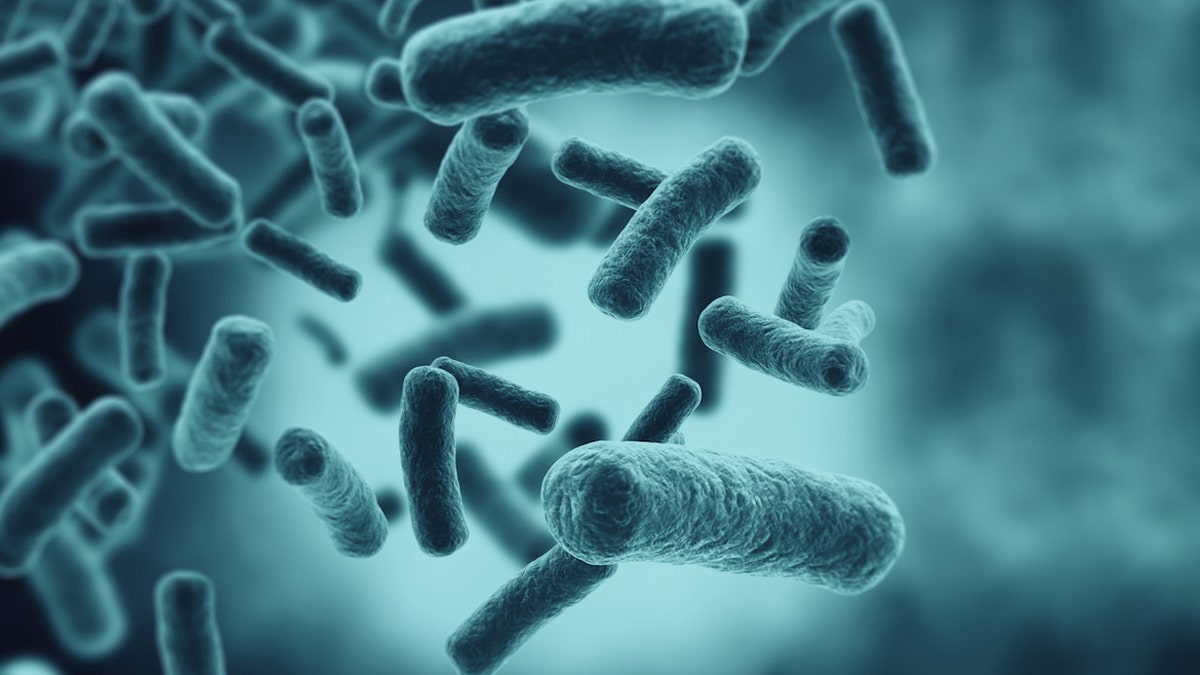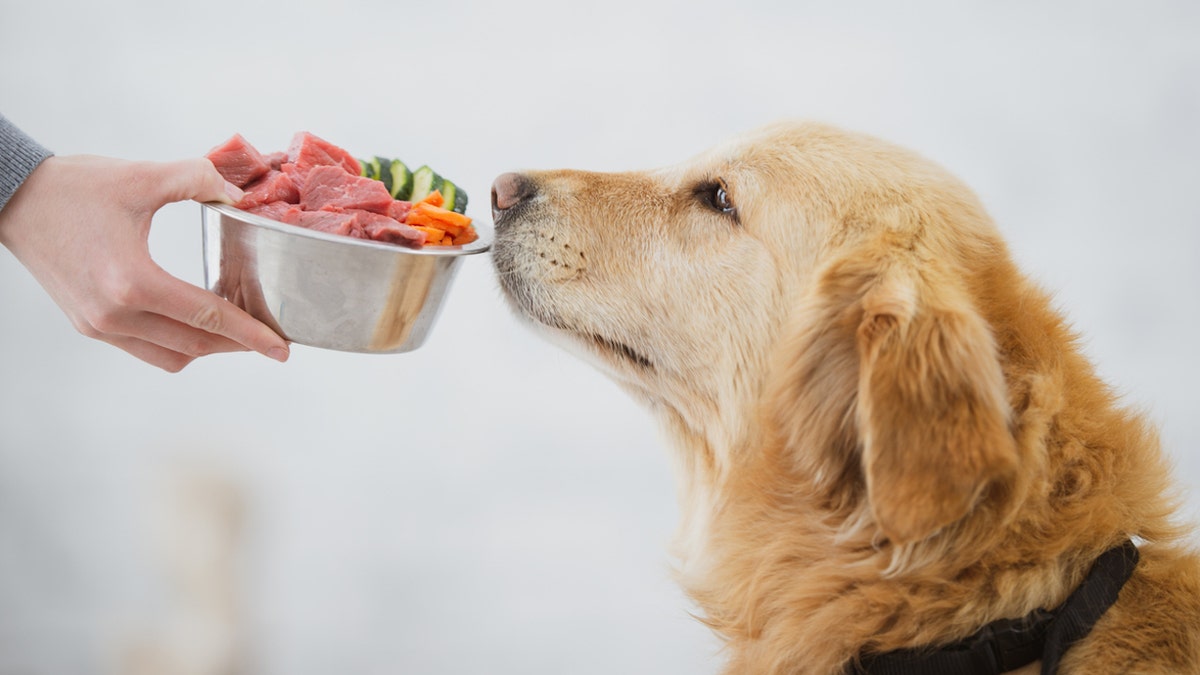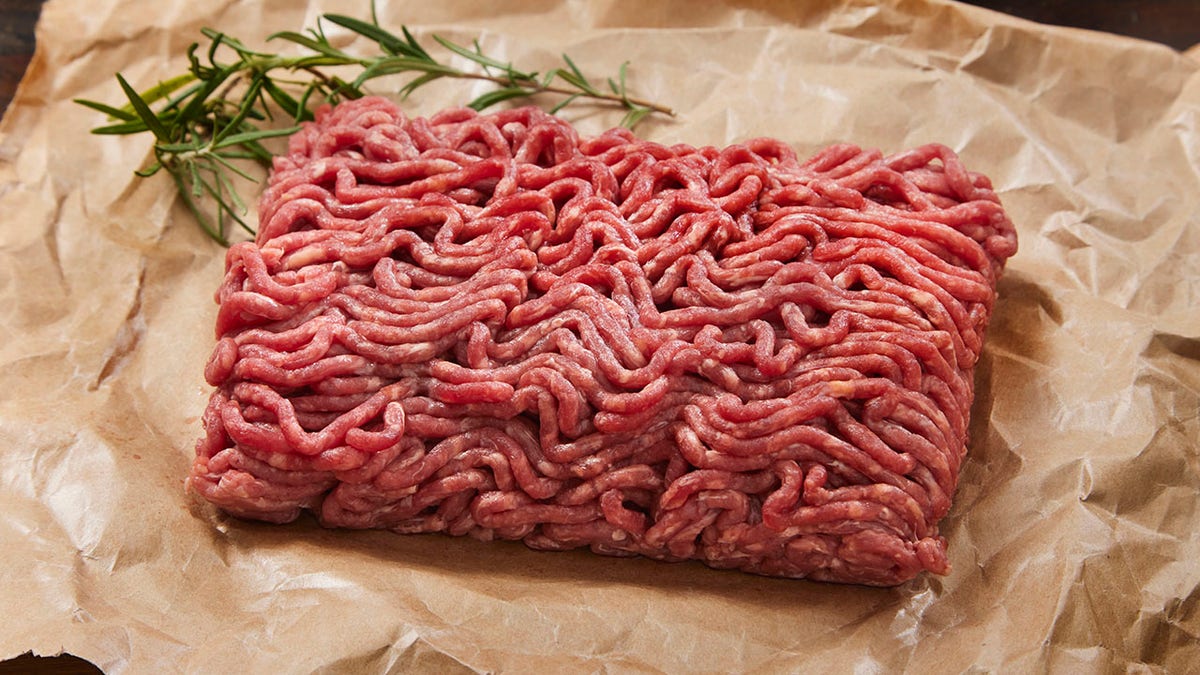High levels of E. coli were found in uncooked meats and raw dog food sold in grocery stores in the U.K., according to research presented last week at the European Society of Clinical Microbiology and Infectious Diseases (ESCMID) Global Congress in Barcelona.
Researchers from the University of Bristol examined 58 samples of raw beef, chicken, pork and lamb sold at grocery stores in the U.K., along with 15 samples of raw dog food sold at “specialty pet stores,” according to a press release.
Eighty-one percent of the meat samples and 87% of the dog food samples were found to contain E. coli (Escherichia coli) that was resistant to antibiotics.
E.COLI BACTERIA DETECTED IN GRAND CANYON NATIONAL PARK’S WATER SUPPLY
The raw chicken had the highest levels of the resistant intestinal bacteria.
“E. coli is an intestinal bacteria that may propagate in cows and chickens used for meat, especially when they are raised in squalor or close together,” Dr. Marc Siegel, clinical professor of medicine at NYU Langone Medical Center and a Fox News medical contributor, told Fox News Digital.
High levels of E. coli were found in uncooked meats and raw dog food sold in grocery stores, according to research presented last week at the European Society of Clinical Microbiology and Infectious Diseases (ESCMID) Global Congress in Barcelona. (iStock)
“Since poultry and meat cows are often fed antibiotics to help them grow and to ward off infections, this helps to breed resistant strains, which emerge amid antibiotic overuse.”
MEAT CONTAMINATED WITH E. COLI COULD CAUSE HALF A MILLION URINARY TRACT INFECTIONS EACH YEAR, STUDY FINDS
Siegel was not involved in the study.
“This study confirms that uncooked meat carries multiple resistant E. coli, commonly including resistance to critically important antibiotics important for human health,” the study authors said in a press release from ESCMID.

“E. coli is an intestinal bacteria that may propagate in cows and chickens used for meat, especially when they are raised in squalor or close together.” (iStock)
If ingested, the bacteria could colonize the intestines and cause resistant infections, according to study author Matthew B. Avison, a professor at the School of Cellular & Molecular Medicine, University of Bristol.
“They can sit in your gut for years without causing sickness, and in some cases the bacteria will cause different types of disease later on, including urinary tract infections and bloodstream infections that can kill,” Avison told Fox News Digital.
“Infections with resistant bacteria are more difficult to treat and so are more likely to get worse.”
RAW DIET FOR DOGS IS TAKING OVER TIKTOK, BUT WHAT DOES YOUR VETERINARIAN THINK OF THE LATEST TREND?
Uncooked meat sold to be eaten by people after cooking is “commonly contaminated” with antibiotic-resistant E. coli, Avison noted.
The study results weren’t surprising, he said, as there have been “numerous reports” of antibiotic-resistant bacteria in uncooked meat and some studies showing this in raw dog food.
“In some cases, the bacteria will cause different types of disease later on, including urinary tract infections and bloodstream infections.”
“People often believe that because raw dog food is sold frozen, the freezing kills the bacteria, but we have shown that it does not,” Avison told Fox News Digital.
“There were just as many samples of chicken-based raw dog food contaminated with resistant E. coli than there were samples of raw chicken meat. If you feed your dog raw meat, therefore, you are likely feeding it antibiotic resistant E. coli.”
These findings explain why researchers previously found a strong link between feeding dogs raw meat and the dogs excreting resistant E. coli in their feces, Avison noted.

“People often believe that because raw dog food is sold frozen, that freezing kills the bacteria on it, but we have shown that it does not,” a researcher told Fox News Digital. (iStock)
Most people are not aware of the risk of these antibiotic-resistant pathogens, the researchers stated in the release.
They emphasized the importance of cooking meat thoroughly before eating, and using “appropriate hygiene practices” while preparing it.
“Cooking the meat properly will kill those bacteria,” Avison advised.
‘GENTLE GIANT’ DOG, AT 250 POUNDS, EATS AN ENTIRE CHICKEN DAILY AS OWNER SPENDS NEARLY $5K A YEAR ON FOOD
“Treat all raw meat as if it were contaminated with antibiotic-resistant bacteria and assume dogs fed raw meat will be excreting resistant bacteria,” he went on.
“Use appropriate hand-washing and general hygiene practices to minimize the risk that you and other people will accidentally ingest these bacteria.”
“If you feed your dog raw meat, you are likely feeding it antibiotic resistant E. coli.”
Dog owners who feed raw meat to their pets should dispose of the animals’ waste hygienically, Avison said.
“Don’t let your dog lick your face or share your bed, and wash your hands after petting it,” he recommended. “These are all common sense practices anyway, but even more important if you raw-feed your dog.”

Researchers emphasized the importance of cooking meat thoroughly before eating, and using “appropriate hygiene practices” while preparing it. (iStock)
“And, of course, treat raw dog food as if it were any raw meat, in terms of hygiene and cleaning practices.”
The study raises a “red flag,” Siegel said, underscoring the importance of making sure that poultry and meat is fully cooked prior to human consumption, and that dog food is also cooked.
CLICK HERE TO SIGN UP FOR OUR HEALTH NEWSLETTER
Andre Delattre, chief operating officer of Public Interest Research Groups (PIRG) in Washington, D.C., said the study “underscores the importance of ending the practice of routine use of antibiotics in animal agriculture.”

“Use appropriate hand-washing and general hygiene practices to minimize the risk that you and other people will accidentally ingest these bacteria,” researchers said. (iStock)
“An inevitable byproduct of antibiotic overuse is resistance to these drugs,” he told Fox News Digital.
“Studies have also shown that meat raised without antibiotics is less likely to be contaminated with resistant bacteria.”
CLICK HERE TO GET THE FOX NEWS APP
The University of Bristol study was published on a pre-print server and has not yet been peer-reviewed.
Fox News Digital reached out to the U.K. Food Standards Agency (FSA) and the U.S. Food and Drug Administration (FDA) for comment.
For more Health articles, visit www.foxnews.com/health.
